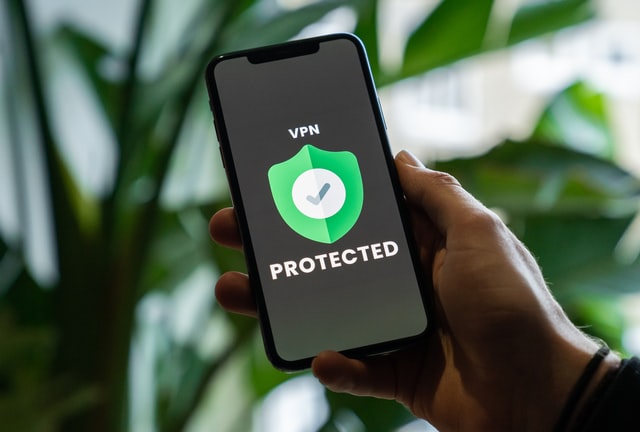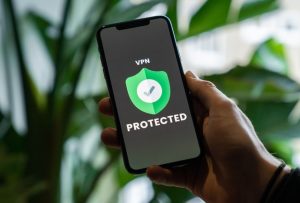Are you looking for a Virtual Private Network (VPN) to protect your online privacy and security? With so many VPNs on the market, it can be difficult to know which one is right for you. In this article, we’ll cover what you need to know before choosing a VPN, including speed, security, customer service and features. Read on to learn more about how to make an informed decision when selecting a VPN provider..
Speed
When choosing a VPN, speed is an important factor to consider. You want to make sure that the VPN you choose is fast enough to meet your needs. Look for a provider that offers high-speed connections and unlimited bandwidth. Speed is important; there’s no denying it. And speed is one of the biggest factors you consider when choosing a VPN provider.
The question arises: does a VPN slow down internet speed? The answer to whether a VPN does or does not slow down Internet speed depends on several factors, such as the type of protocol used, server location, and encryption strength. A VPN’s primary purpose is to ensure privacy and security online, but no one wants to compromise speed. High speed is always a top priority.
In this article, we discuss the factors that impact the speed of VPN connections and how you can increase the speed of your connection when using one of our recommended providers. We will also provide tips on how to optimize your connection for maximum performance.
Protocols
The type of protocol used by your chosen provider can have an effect on its overall performance in terms of both security and speeds offered. OpenVPN (UDP/TCP) provides excellent speeds while maintaining strong encryption standards; however, it may be slower than other protocols such as IKEv2 or L2TP/IPSec.
Server Location
The physical location of servers can also affect speeds significantly; if you are connecting from Europe but using servers located in Asia or North America then expect slower speeds due to increased latency (the time taken for data packets sent from one point in the world to another). It’s best practice therefore to connect with servers located close by geographically.
Encryption Strength
Stronger encryption levels require more processing power which can result in slower connection speeds compared with weaker encryption levels – so if you are looking for maximum performance then opt for weaker encryption levels such as AES-128 instead of AES-256.
VPN Internet Speed Recommendation
For optimal performance , we recommend using OpenVPN ( UDP / TCP ) with AES – 128 bit encryption . This combination should provide good balance between security , privacy , and internet speeds . Additionally , make sure that you connect with servers located close by geographically . .
Security
When it comes to security, choosing the right VPN is essential. A reliable VPN should offer strong encryption and a no-logs policy to ensure that your data is secure and your online activities are not being tracked. Encryption scrambles all data so that no one can view what you do online, while a no-logs policy means that the provider cannot track your activities either.
A good VPN will use military-grade encryption protocols such as OpenVPN or IKEv2/IPSec to protect your data traffic. This ensures that even if someone were to intercept your internet signal, they would not be able to decode the encrypted data. Additionally, most reputable VPN services have a clear no-logs policy (even better if they’re audited) which means they cannot store logs of any of your activities.
To recap, when selecting a VPN for security purposes it’s important to look for one with strong encryption protocols and an audited no-logs policy. This will ensure that all of your web activity is kept private and secure from prying eyes.
Customer Service
When choosing a VPN, customer service is an important factor to consider. Look for a provider that offers 24/7 customer support and a money-back guarantee. This will ensure that you can get help if you have any issues with the service. If you’re not sure whether or not the VPN is right for you, look for a free trial or money-back guarantee to test it out before committing.
Features
When choosing a VPN, it is important to consider the features offered by the provider. Look for a provider that offers a wide range of features such as split tunneling, kill switch, and DNS leak protection. These features will ensure that your data is secure and that your online activities are not being tracked.
Split Tunneling: Split tunneling allows you to route some web traffic to your ISP and some through an encrypted VPN tunnel. This feature is important to protect sensitive data from being exposed while still allowing access to certain websites or services without having to connect through the VPN. It also helps reduce latency when streaming content or playing online games.
Kill Switch: A kill switch is an essential feature for any VPN user as it prevents any unencrypted data from leaking out if the connection drops unexpectedly. The kill switch will automatically disconnect you from the internet if it detects that your connection has been lost, ensuring that no sensitive information can be exposed.
DNS Leak Protection: DNS leak protection ensures that all of your web traffic goes through the encrypted VPN tunnel instead of being routed directly through your ISP’s servers. This prevents anyone from snooping on what websites you are visiting or what data you are sending over the internet.
- If you’re new to VPNs and confused by all these features, read this article for a comprehensive guide on what they mean and how they work.
Conclusion
Choosing the right VPN can be a daunting task, but taking the time to research different providers and their offerings can help you find the best one for your needs. CNET recommends the best VPN service after reviewing and testing top providers like ExpressVPN, NordVPN, Surfshark, CyberGhost and more. To make sure you make an informed decision when selecting a VPN provider, here is a checklist of important factors to consider:
- Encryption: Look for features like AES-256 encryption and OpenVPN functionality.
- Auditing: Make sure that products are independently audited by a respected third party.
- Guides: There are many guides out there about choosing a VPN service; however it is important to consider how relevant their recommendations are to your personal needs.
When selecting a provider in 2023, it is important to look at popular services such as NordVPN, Surfshark VPN & Atlas VPN which have been tested, reviewed and compared. Additionally look for features such as AES-256 encryption & OpenVPN functionality which have been independently audited by respected third parties. Ultimately it is up to you to decide what factors matter most when choosing the right provider for your needs.





Be First to Comment